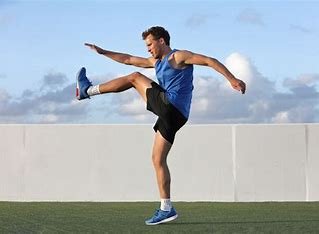Stretching is a key part of any fitness routine, helping to improve flexibility and reduce the risk of injury. There are two primary types of stretching: static and dynamic, and each serves different purposes.

Static Stretching
- What it is: Involves holding a stretch for an extended period, usually between 15 to 60 seconds.
- When to do it: Typically performed after a workout, during the cool-down phase, to increase flexibility and lengthen the muscles that were used.
- Benefits:
- Increases flexibility over time.
- Helps with muscle relaxation and recovery.
- Reduces muscle stiffness post-exercise.
- Examples:
- Forward bends
- Quad stretch (holding the foot to the glutes)
- Seated hamstring stretch
Dynamic Stretching
- What it is: Involves moving parts of your body and gradually increasing the reach or speed of the movement. These stretches are more active and involve motion.
- When to do it: Best done before a workout to prepare the muscles for physical activity by increasing blood flow and mobility.
- Benefits:
- Improves joint mobility.
- Prepares the body for exercise and enhances athletic performance.
- Increases heart rate and circulation.
- Examples:
- Leg swings (front-to-back, side-to-side)
- Walking lunges
- Arm circles
Key Differences
- Purpose:
- Static is for improving flexibility and muscle relaxation.
- Dynamic is for preparing the body for movement and enhancing mobility.
- When to Use:
- Static is used after workouts for recovery and stretching muscles.
- Dynamic is used before workouts to warm up and activate muscles.
- Movement:
- Static is stationary (holding a position).
- Dynamic involves movement through a range of motion.
